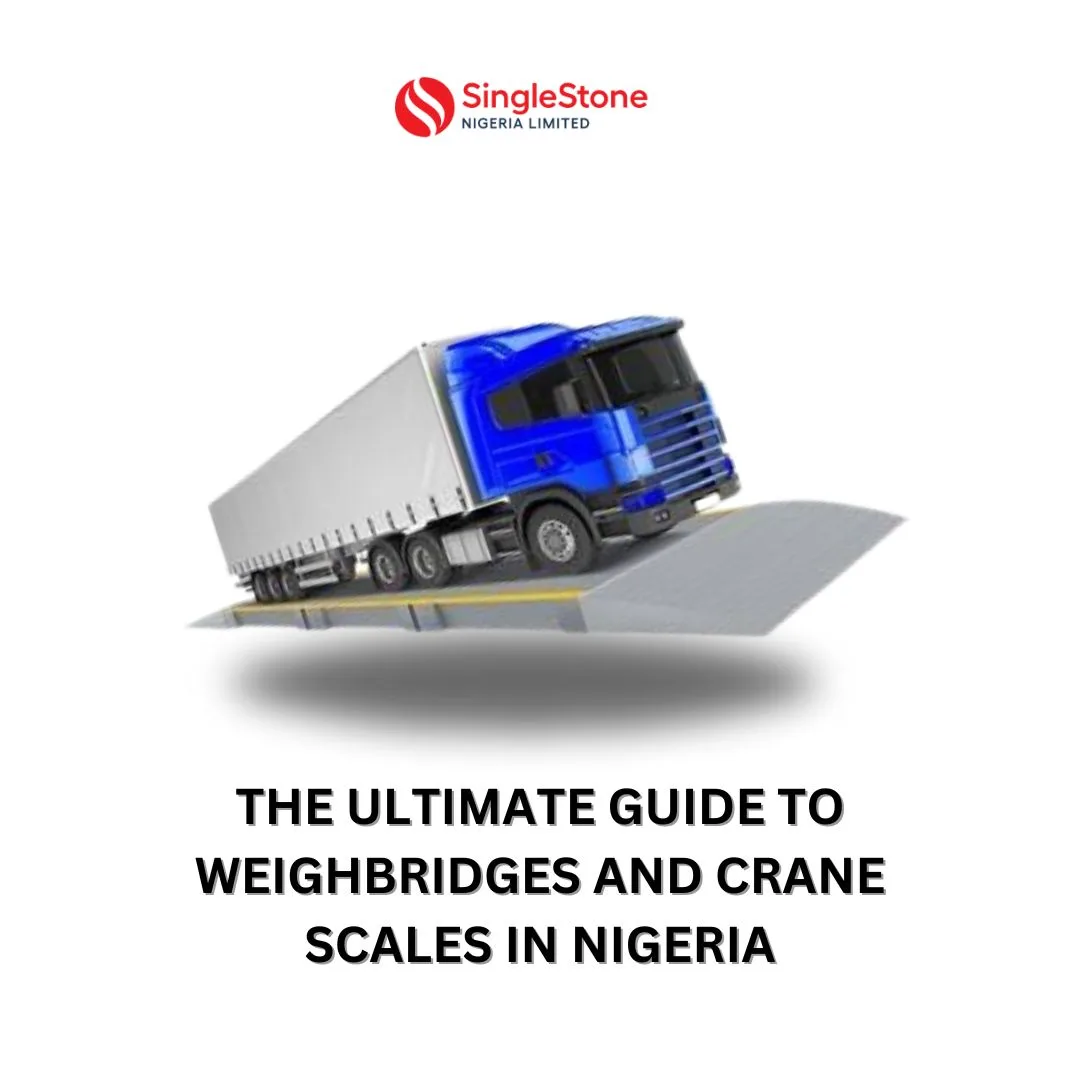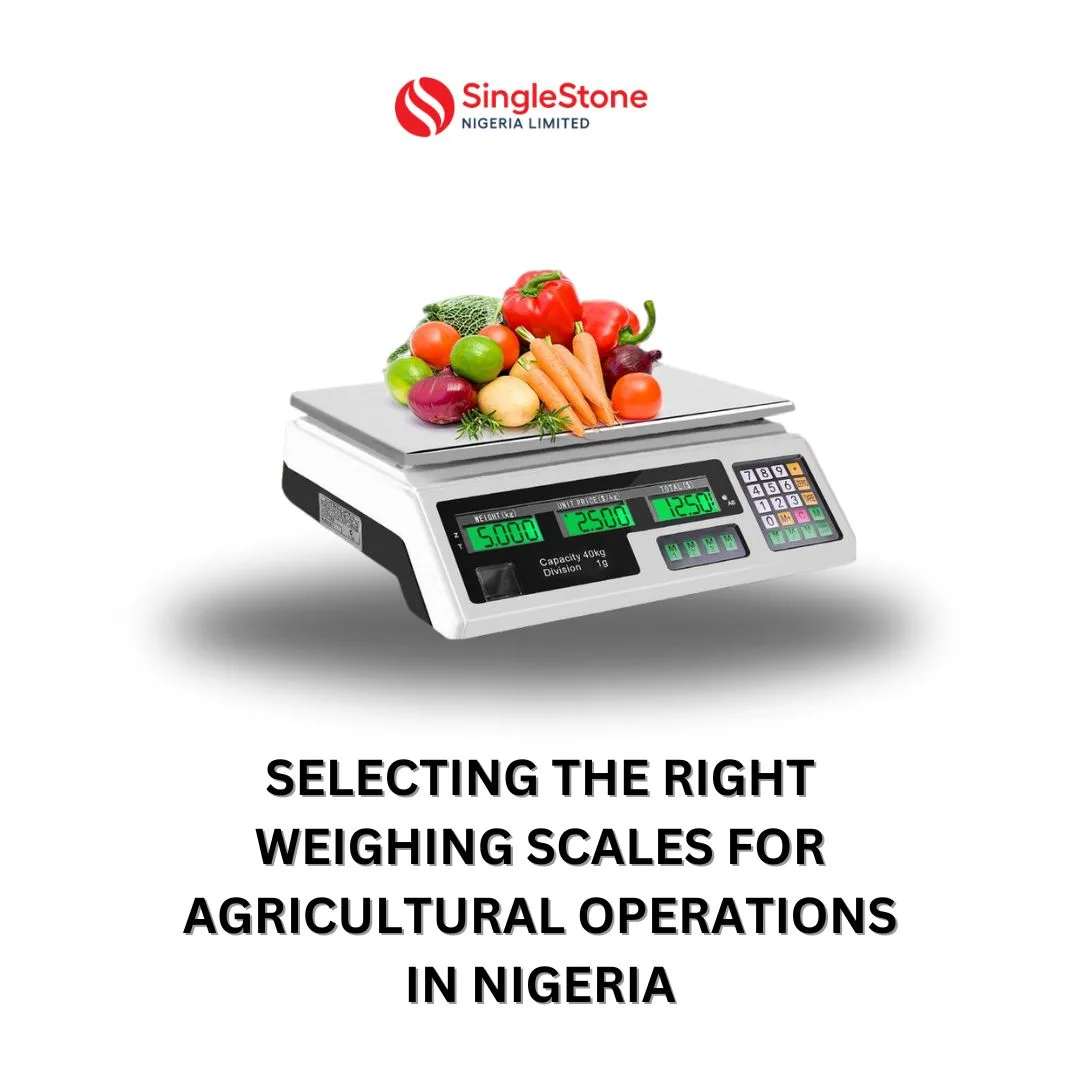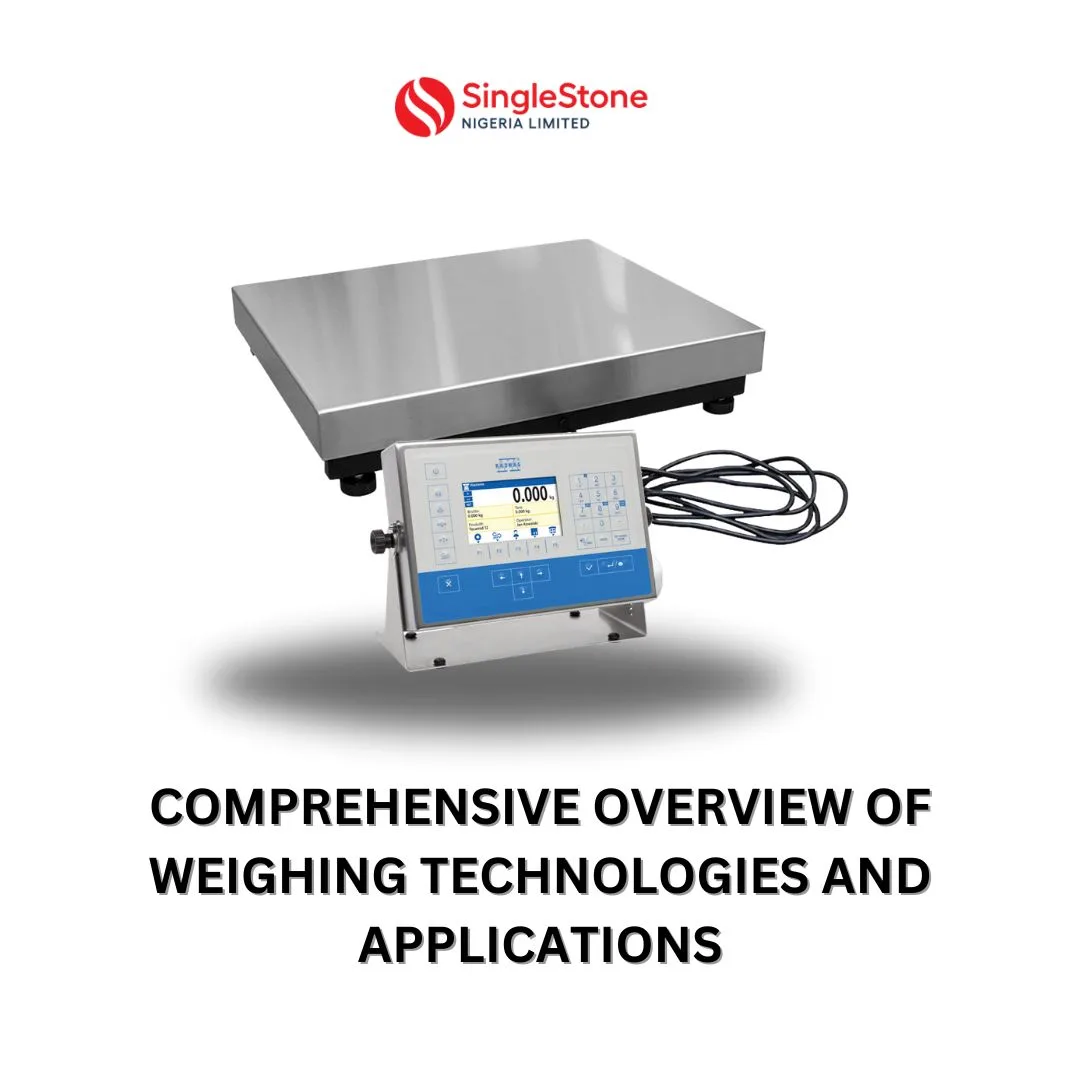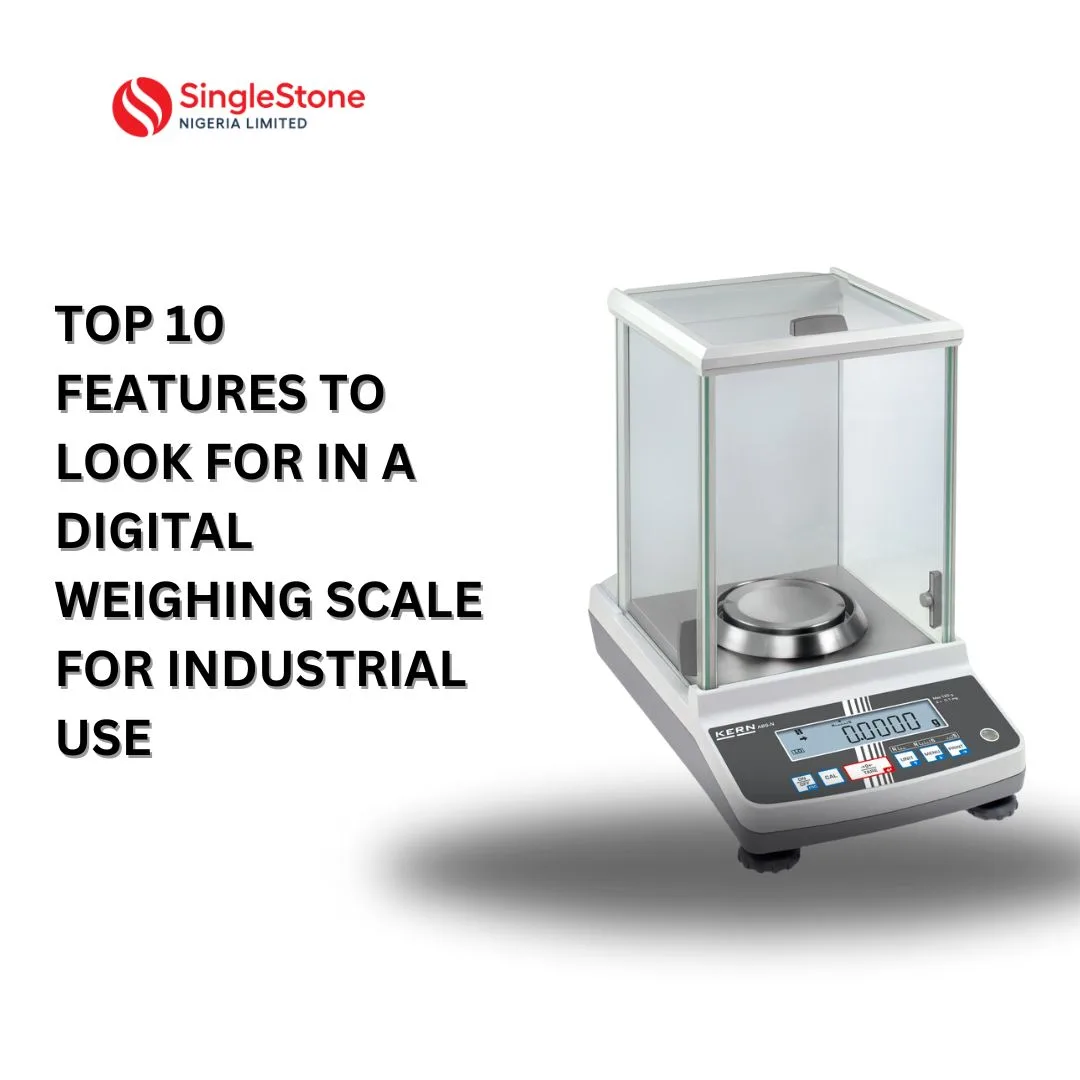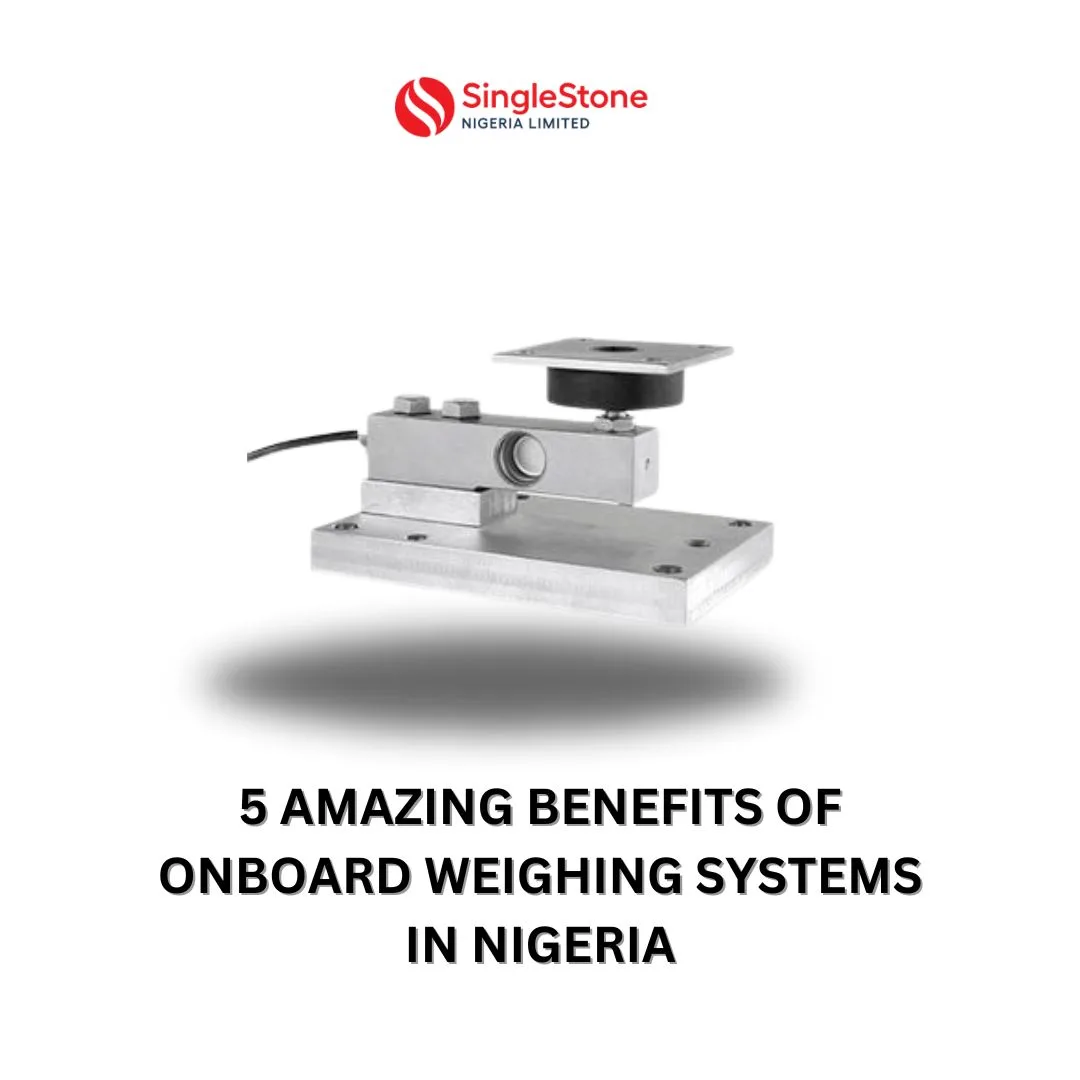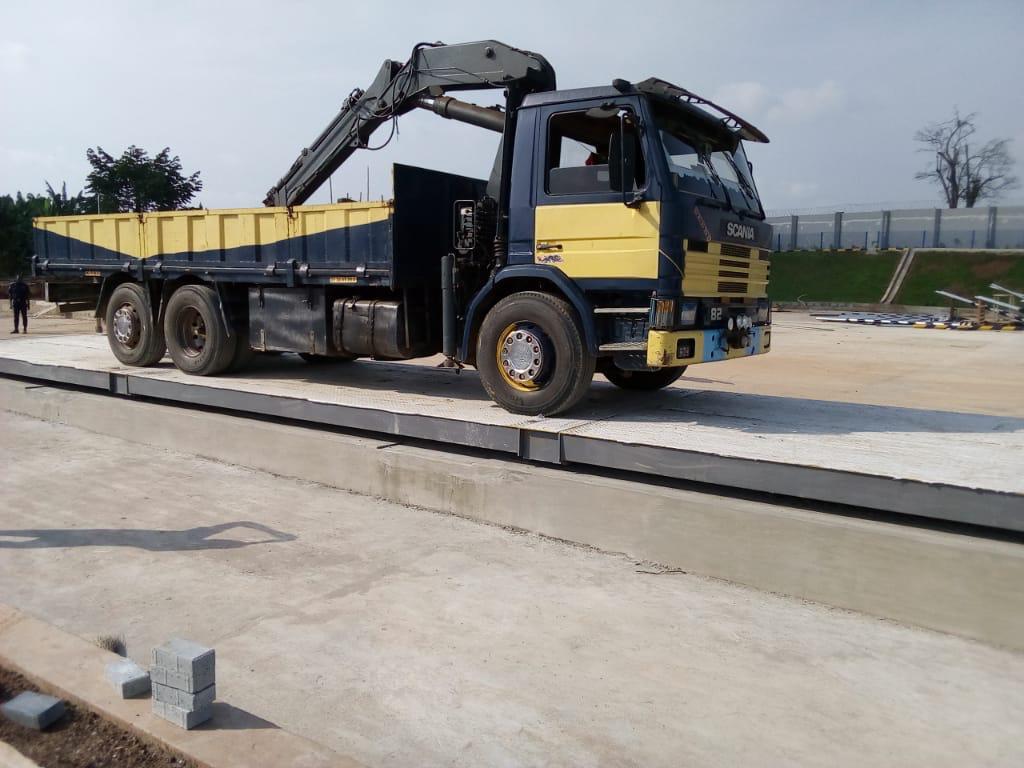The Ultimate Guide to Weighbridges and Crane Scales in Nigeria
In industries where precision and efficiency are critical, the importance of weighbridges and crane scales cannot be overstated. These essential tools facilitate accurate weight measurement, which is crucial for businesses in sectors like logistics, manufacturing, agriculture, and construction. Singlestone Nigeria Limited, based in Lagos, is at the forefront of providing cutting-edge weighbridge and crane scale solutions in Nigeria.
This comprehensive guide explores the various types, uses, and benefits of weighbridges and crane scales while highlighting Singlestone Nigeria Limited’s services.
What is a Weighbridge?
A weighbridge, or truck scale, is a large, durable scale specifically designed to weigh vehicles, including their cargo. Typically installed at industrial sites, warehouses, and shipping hubs, weighbridges provide accurate data that helps businesses manage inventory, comply with regulations, and optimize operations.
What is a Weighbridge Used For?
Weighbridges are vital for:
- Logistics Management: Ensuring vehicles carry loads within permissible limits.
- Inventory Control: Measuring the weight of goods transported to or from a facility.
- Regulatory Compliance: Meeting weight requirements for road safety and legal standards.
- Operational Efficiency: Reducing time spent on manual weighing processes.

Weighbridge Services in Nigeria
Singlestone Nigeria Limited offers comprehensive weighbridge services in Lagos and across Nigeria. These include:
- Sales of Weighbridges
- We supply premium weighbridges, including digital weighbridge models, designed for durability and accuracy.
- We offer customized solutions to fit different industries’ unique needs.
- Installation Services
- Our team ensures seamless installation of weighbridges, considering site-specific requirements for optimal performance.
- Calibration Services
- Regular calibration is essential for maintaining accuracy. We provide professional calibration services to ensure your weighbridge functions perfectly.
- Maintenance and Repairs
- Our maintenance services help prolong the lifespan of your weighbridge, while our repair solutions address any operational issues promptly.
Weighbridge for Sale in Lagos
At Singlestone Nigeria Limited, we provide a variety of weighbridges for sale in Lagos, ranging from analog models to advanced digital weighbridges.
Benefits of Digital Weighbridges
Digital weighbridges offer enhanced precision, real-time data access, and improved durability. They are equipped with features like:
- Automated data recording.
- Integration with management software.
- High resistance to wear and tear.
Where Can I Buy a Weighbridge in Nigeria?
If you’re looking for high-quality weighbridges in Nigeria, Singlestone Nigeria Limited is your trusted partner. With a reputation for excellence, we provide tailored solutions for businesses across various industries. Contact us for a consultation, and we’ll guide you through selecting the ideal weighbridge for your needs.
Crane Scales: Essential Tools for Heavy-Duty Operations
What is a Crane Scale?
A crane scale is a specialized device designed to measure the weight of heavy items lifted by cranes. They are widely used in construction, shipping, and manufacturing industries.
What is a Crane Scale Used For?
Crane scales are used for:
- Load Monitoring: Ensuring cranes are not overloaded, reducing the risk of accidents.
- Inventory Weighing: Weighing large loads without the need for additional equipment.
- Operational Efficiency: Enhancing productivity by integrating weighing into lifting processes.
Crane Scale Price in Nigeria
The price of a crane scale in Nigeria depends on factors such as capacity, accuracy, and advanced features. At Singlestone Nigeria Limited, we offer a range of crane scales to suit different budgets and operational needs. Contact us for the latest prices and specifications.
Why Choose Singlestone Nigeria Limited?
- Expertise: With years of experience in the industry, we understand the unique challenges businesses face regarding weighing solutions.
- Quality Assurance: All our products meet international standards for accuracy and durability.
- Comprehensive Services: From sales and installation to maintenance and repairs, we provide end-to-end solutions.
- Customer Support: Our dedicated team offers exceptional support to ensure customer satisfaction.
Weighbridge Price in Nigeria
Weighbridge prices vary based on size, type, and additional features. At Singlestone Nigeria Limited, we provide cost-effective options without compromising quality. Whether you need a basic analog model or an advanced digital weighbridge, we have something for every budget.
Weighbridge and Scales Services
In addition to weighbridges, we offer various other scales to cater to specific needs, including:
- Platform scales for warehouses.
- Bench scales for retail applications.
- Portable scales for on-the-go weighing requirements.
Why Accurate Weighing is Crucial
Accurate weighing impacts various aspects of business operations, including:
- Profitability: Avoid financial losses caused by incorrect weight measurements.
- Compliance: Meet legal standards to avoid penalties.
- Safety: Ensure equipment and vehicles operate within safe weight limits.
Contact Singlestone Nigeria Limited Today!
Located in Lagos, Singlestone Nigeria Limited is your trusted partner for all weighbridge and crane scale needs in Nigeria. Whether you’re looking for a weighbridge for sale, crane scales, or professional services like installation and calibration, we are here to help.
Contact us today to learn more about our products and services, request a quote, or schedule a consultation. Trust Singlestone Nigeria Limited for reliable, accurate, and cost-effective weighing solutions tailored to your business needs.
Top 5 Industries in Nigeria That Rely on Weighing Solutions
Weighing solutions are integral to many industries, providing precision, efficiency, and compliance with regulatory standards. In Nigeria, the adoption of advanced weighing technologies like industrial scales, digital scales, and truck scales has significantly improved operational processes. These industries leverage weighing equipment ranging from small scales to large scales, ensuring accuracy in measurement and enhancing productivity. This article explores the top five industries in Nigeria that depend heavily on weighing solutions.
Agriculture and Food Processing
The agriculture and food processing sector in Nigeria relies heavily on weighing systems to maintain quality and consistency. From measuring produce to ensuring accurate portions in food production, weighing solutions are indispensable.
Applications in Agriculture:
- Food Weighing Scales: Farmers use these scales to weigh crops like rice, cocoa, and cassava for sale or export.
- Large Scales and Load Cells: Essential for weighing bulk produce and ensuring fair trade.
- Electronic Balances: Help in precise measurements during food packaging.
Applications in Food Processing:
- Analytical Weighing Scales: Critical for ensuring the correct mix of ingredients in processed foods.
- Scales for Food: Used in bakeries, confectionery production, and packaged goods manufacturing.
By incorporating touch scales and digital scales, Nigerian food producers achieve better consistency and compliance with industry standards, boosting consumer trust and export potential.
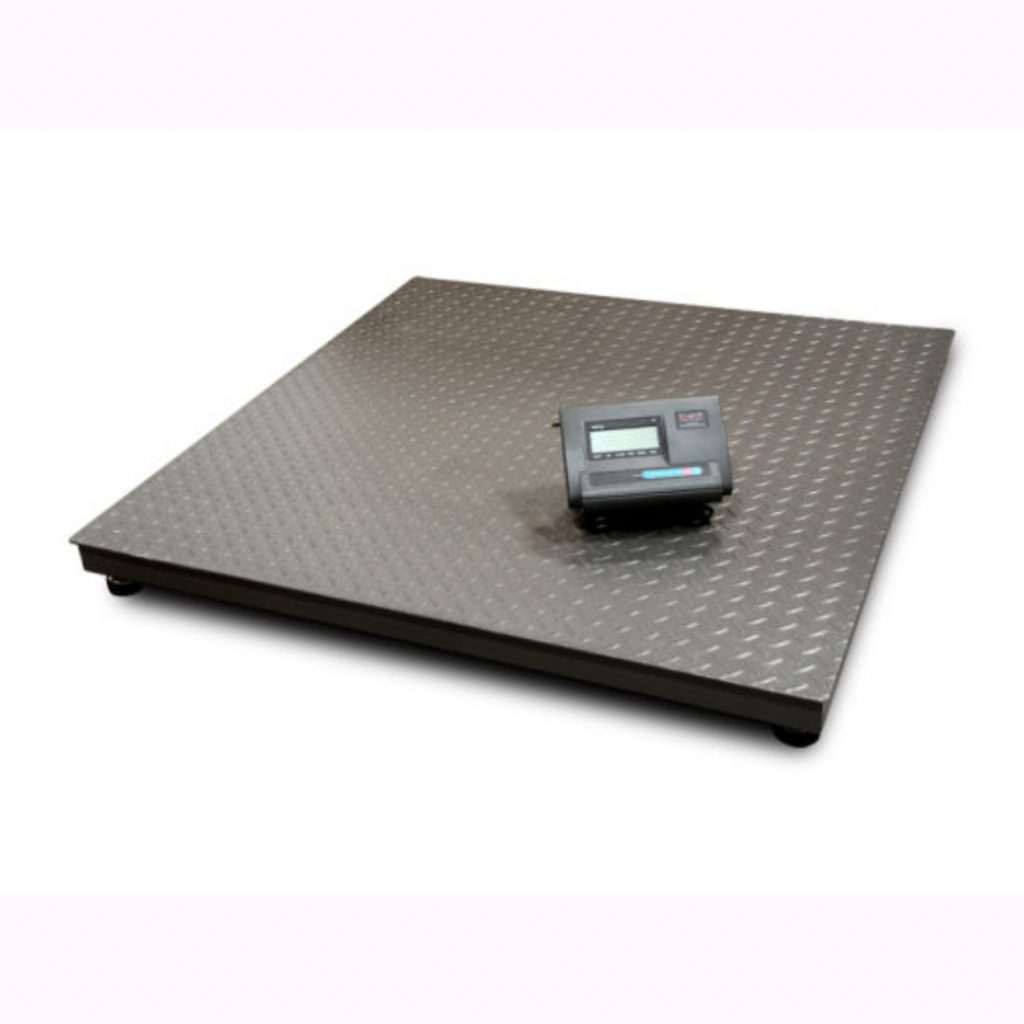
Transportation and Logistics
In the transportation and logistics sector, weighing systems are vital for maintaining safety, compliance, and operational efficiency.
Key Applications:
- Vehicle Weighing Scales: These scales ensure trucks carry loads within permissible weight limits, preventing road damage and penalties.
- Truck Weight Scales Near Me: Businesses often locate nearby weighing stations to ensure timely checks before dispatching goods.
- Weighing Systems at Vehicle Weighing Stations: These stations prevent overloading and ensure road safety.
Modern truck scales, equipped with digital weighing technology, allow logistics companies to streamline operations. The use of scale weight truck systems reduces errors and ensures accurate weight recording.
Popular Options:
- Vehicle Weight Scales Near Me: These are increasingly sought after by logistics firms.
- Portable Weighing Systems: Ideal for businesses that need flexible solutions.
Manufacturing and Industrial Production
The manufacturing sector in Nigeria relies on precise weight measurements to maintain quality and efficiency in production. Whether it’s a small factory or a large-scale operation, weighing equipment is essential.
Applications in Manufacturing:
- Industrial Weighing Scales: Used to weigh raw materials and finished goods.
- Crane Scales: Essential for heavy-duty operations like weighing machinery parts or bulk materials.
- Load Cells and Weigh Cells: Provide accurate readings, even for large or irregularly shaped items.
Benefits for Manufacturers:
- Cost Savings: By using scale electronic systems, manufacturers reduce material wastage.
- Quality Assurance: Analytical scales ensure precise measurements for products requiring stringent standards.
Manufacturers often look for scales for sale that meet their specific needs, from small scales for minor components to large scales for heavy machinery.
4. Retail and E-commerce
Retailers and e-commerce businesses in Nigeria depend on weighing solutions for pricing accuracy and customer satisfaction. Accurate weight measurements help prevent disputes and ensure fair pricing.
Applications:
- Weighing Scale for Home: Commonly used in small retail outlets for weighing groceries.
- Touch Scales: Enhance the customer experience by providing precise and easy-to-read measurements.
- Electronic Balance Scales: Widely used in supermarkets and online stores for product packaging.
E-commerce Integration:
- Scale Digital Scale Systems: Integrated with inventory management software to track stock accurately.
- Scales for Food: Critical for online grocery stores offering precise weight-based pricing.
By adopting modern weighing systems, Nigerian retailers improve operational efficiency and enhance customer trust.
5. Construction and Mining
The construction and mining industries require robust weighing solutions to handle heavy loads and ensure operational efficiency.
Applications in Construction:
- Vehicle Weighing Scales: Used to weigh materials like cement, sand, and gravel before transport to construction sites.
- Crane Scales: Aid in lifting and weighing heavy construction materials.
- Truck Weight Scales Near Me: Ensure vehicles comply with weight regulations.
Applications in Mining:
- Industrial Weighing Scales: Essential for weighing minerals like coal, gold, and limestone.
- Load Cells: Provide accurate weight measurements for extracted materials.
The integration of vehicle weigh scales near me with modern weighing scale weight systems enables these industries to optimize operations and maintain regulatory compliance.
Choosing the Right Weighing Solution
Selecting the appropriate weighing system depends on factors like industry requirements, scale size, and precision. Here are some tips:
- Assess Needs:
- For small businesses, weighing scales for home or scales small might suffice.
- For heavy-duty operations, truck scales or crane scales are more appropriate.
- Consider Technology:
- Digital Scales: Offer precision and ease of use.
- Electronic Balances: Ideal for scientific or food-related applications.
- Look for Durability:
- Industries like mining require large scales and robust load cells to withstand harsh conditions.
Maintaining Weighing Equipment
Regular maintenance ensures accuracy and longevity. Key steps include:
- Calibration: Regularly calibrate scales to maintain precision.
- Cleaning: Remove debris from food on a scale or industrial equipment to prevent errors.
- Professional Servicing: For complex systems like truck weight scales, seek professional support.
Weighing solutions play a pivotal role in the efficiency and accuracy of operations across various industries in Nigeria. From food weighing scales in agriculture to crane scales in construction, these tools are indispensable. By investing in the right weighing systems and maintaining them well, businesses can achieve higher productivity, safety, and compliance. Whether you need vehicle weighing stations near me or scales for sale, the availability of diverse options ensures that every industry finds a suitable solution.
Why Crane Scales Matter: The Importance and Benefits for Your Business
In industries where precision and efficiency are paramount, tools like crane scales play a pivotal role in day-to-day operations. Whether you run a manufacturing facility, a shipping company, or a construction site, the importance of accurate weight measurement cannot be overstated. A crane scale is more than just a weighing tool—it’s a gateway to safety, productivity, and profitability.
This blog will highlight why crane scales matter, their benefits, and how choosing the right one—such as a digital crane scale or a heavy-duty overhead crane scale—can transform your business operations.
What Is a Crane Scale?
A crane scale is a heavy-duty weighing device suspended from a crane, used to measure the weight of objects. Unlike platform scales, crane scales are designed for lifting and weighing simultaneously, making them ideal for industries requiring overhead material handling.
From light-duty 300kg crane scales to robust 5-ton crane scales, these devices cater to a wide range of applications. The evolution of technology has introduced digital crane scales equipped with advanced features, ensuring accuracy, durability, and ease of use.
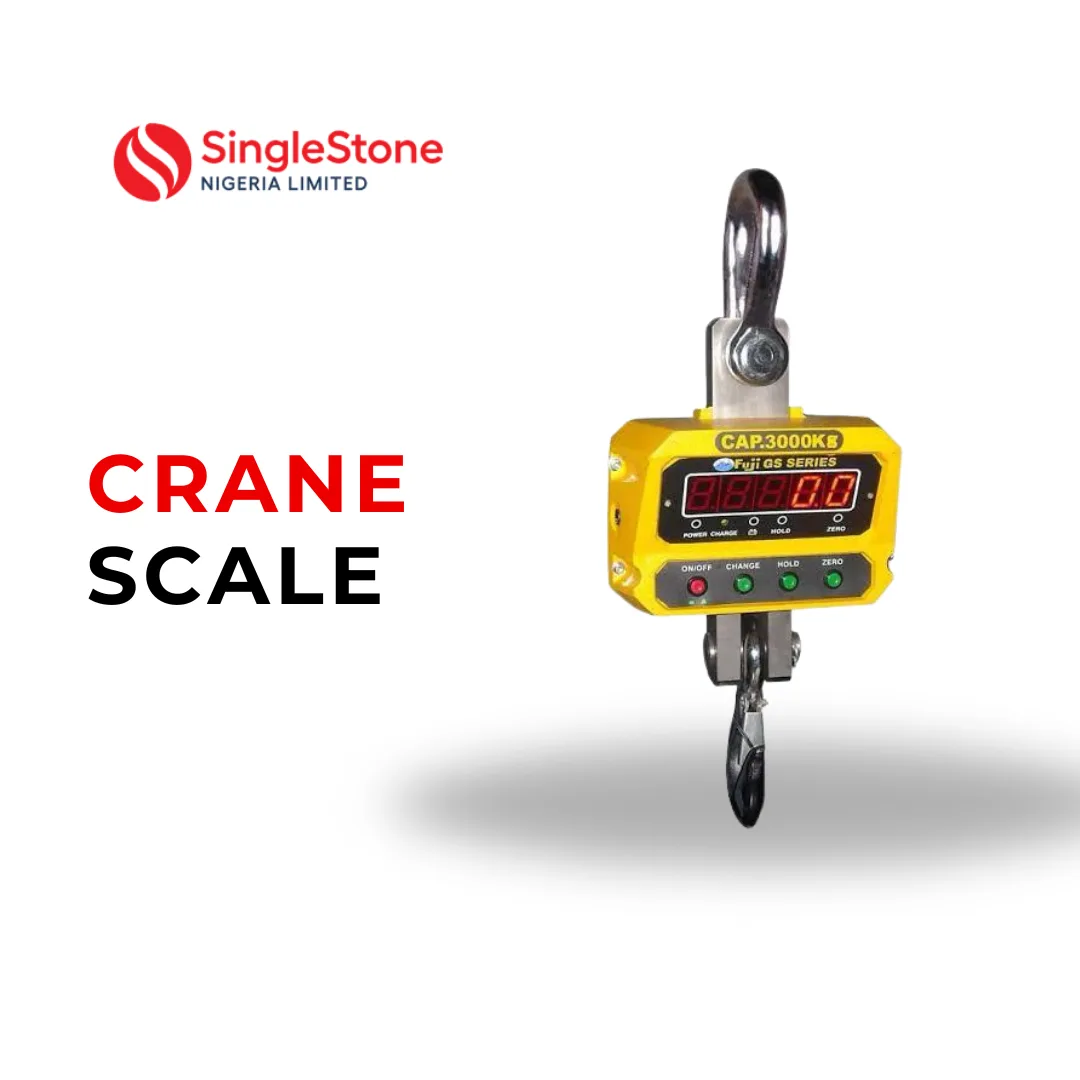
Why Crane Scales Matter for Your Business
1. Enhancing Safety Standards
Overloading cranes or miscalculating load weights can lead to catastrophic accidents, jeopardizing equipment, inventory, and human lives. Using a crane scale ensures precise weight measurements, preventing overloads and enhancing safety.
2. Optimizing Efficiency
Traditional weighing methods can be time-consuming, requiring items to be manually loaded and weighed. With crane scales, weighing is integrated into the lifting process, significantly reducing operational downtime and improving workflow efficiency.
3. Improving Cost Management
Accurate weight measurements help avoid penalties for exceeding weight limits during transportation, optimize shipping costs, and reduce the risk of damage to equipment or goods caused by improper loading.
4. Compliance with Regulations
Industries like shipping, construction, and manufacturing must adhere to strict weight compliance regulations. Crane scales ensure your business stays compliant, minimizing legal risks.
5. Versatility in Applications
From weighing bulky cargo in shipping yards to measuring raw materials in factories, crane scales are versatile tools. Models like the crane scale 300kg are perfect for lighter loads, while the 5-ton crane scale caters to heavy-duty needs.
The Importance of Choosing the Right Crane Scale
Investing in the right crane scale tailored to your business needs is crucial. Here’s what to consider:
1. Capacity
Determine the maximum weight your crane will lift. For light industrial tasks, a crane scale 300kg might suffice, while a crane scale 5 ton is essential for heavy-duty operations.
2. Accuracy
Precision is vital, especially in industries like manufacturing and shipping. Opt for digital crane scales, which provide higher accuracy compared to analog models.
3. Durability
Industrial environments are harsh, so choose crane scales built to withstand tough conditions. Look for scales with robust materials, shock resistance, and weatherproofing.
4. Features
Modern digital crane scales offer features like wireless connectivity, overload alarms, and LED displays. These enhance usability and provide real-time data for better decision-making.
5. Portability
Some businesses may require mobile weighing solutions. Lightweight and compact crane scales, like the 300kg models, offer portability without compromising functionality.
Key Benefits of Crane Scales for Businesses
1. Enhanced Productivity
Crane scales streamline operations by eliminating the need to move items to a separate weighing station. This saves time, reduces labor costs, and allows businesses to process more in less time.
2. Increased Accuracy
Whether you’re weighing raw materials or finished goods, accuracy is crucial. Digital crane scales minimize errors, ensuring you get precise measurements every time.
3. Real-Time Data Integration
Modern crane scales come with wireless connectivity, enabling integration with ERP and inventory management systems. This ensures real-time data tracking and improves overall operational efficiency.
4. Space-Saving Solution
Overhead crane scales eliminate the need for bulky weighing equipment, freeing up valuable floor space. This is particularly beneficial for facilities with limited room.
5. Cost-Effectiveness
By improving efficiency, reducing errors, and preventing equipment overuse, crane scales contribute to long-term cost savings.
Applications of Crane Scales Across Industries
1. Manufacturing
In factories, crane scales are used to weigh raw materials and ensure consistency in production.
2. Shipping and Logistics
Crane scales are indispensable in shipping yards, helping businesses avoid fines and maintain compliance with transport regulations.
3. Construction
On construction sites, heavy-duty crane scales, such as the 5-ton models, ensure safe and accurate lifting of construction materials.
4. Waste Management
In waste handling, crane scales help measure and categorize materials for recycling or disposal.
5. Retail and Wholesale
Retailers and wholesalers use crane scales to weigh bulk goods, ensuring accurate billing and inventory management.
Popular Types of Crane Scales
- Digital Crane Scales: Known for their accuracy and advanced features like wireless connectivity and LCD displays.
- Overhead Crane Scales: Heavy-duty models designed for industrial applications.
- 300kg Crane Scales: Ideal for light to medium loads in small-scale operations.
- 5-Ton Crane Scales: Built for handling large, heavy loads in industries like construction and logistics.
Buying Guide: Finding the Best Crane Scales for Sale
When searching for crane scales for sale, consider the following tips:
- Assess Your Needs: Identify the weight capacity, accuracy, and features required for your operations.
- Compare Brands: Research brands known for quality and durability.
- Check Reviews: Look for customer reviews and testimonials to gauge performance.
- Warranty and Support: Ensure the product comes with a warranty and reliable customer support.
- Price vs. Value: While cost is a factor, prioritize long-term value and ROI over initial expense.
Conclusion
Crane scales are more than just a weighing tool—they’re a cornerstone of efficiency, safety, and precision in industrial operations. From digital crane scales to heavy-duty 5-ton models, these devices cater to diverse business needs, offering unparalleled benefits in cost savings, productivity, and compliance.
When you invest in a high-quality crane scale, you’re not just buying a product—you’re investing in the future of your business. So, whether you’re looking for a crane scale 300kg for smaller tasks or a rugged overhead crane scale for industrial use, the right choice can revolutionize your operations and set you on a path to success.
By leveraging the latest advancements in crane scale technology and choosing the right model, your business can stay ahead of the competition while ensuring safety and operational excellence.
Start exploring crane scales for sale today and discover the transformative impact they can have on your business.
Selecting the Right Weighing Scales for Agricultural Operations in Nigeria
When weighing agricultural products, every kilogram counts, and precision can make the difference between profit and loss, choosing the right weighing scales is more than just a technical decision—it’s a strategic investment. This comprehensive guide will walk you through everything you need to know about agricultural weighing solutions that can transform your farming operation.
Why Precision Matters: The Economic Impact of Accurate Weighing in Nigerian Agriculture
Agriculture is the backbone of Nigeria’s economy, contributing significantly to our GDP and employing millions. In this competitive landscape, accurate weighing isn’t just a luxury—it’s a necessity. Imagine losing potential revenue due to inaccurate measurements or facing challenges in market negotiations because your weighing equipment isn’t up to standard.
Key Economic Considerations
- Accurate weights directly impact sales pricing
- Helps in maintaining quality control
- Essential for fair trade and market competitiveness
- Reduces disputes with buyers and traders
Understanding Load Cells: The Heart of Modern Agricultural Weighing Solutions
Load cells are the unsung heroes of modern weighing technology. These sophisticated sensors convert physical force into measurable electrical signals, providing unprecedented accuracy in weight measurement. For Nigerian farmers, this means:
- Precise crop yield measurements
- Accurate livestock weight tracking
- Reliable inventory management
- Improved financial planning and forecasting
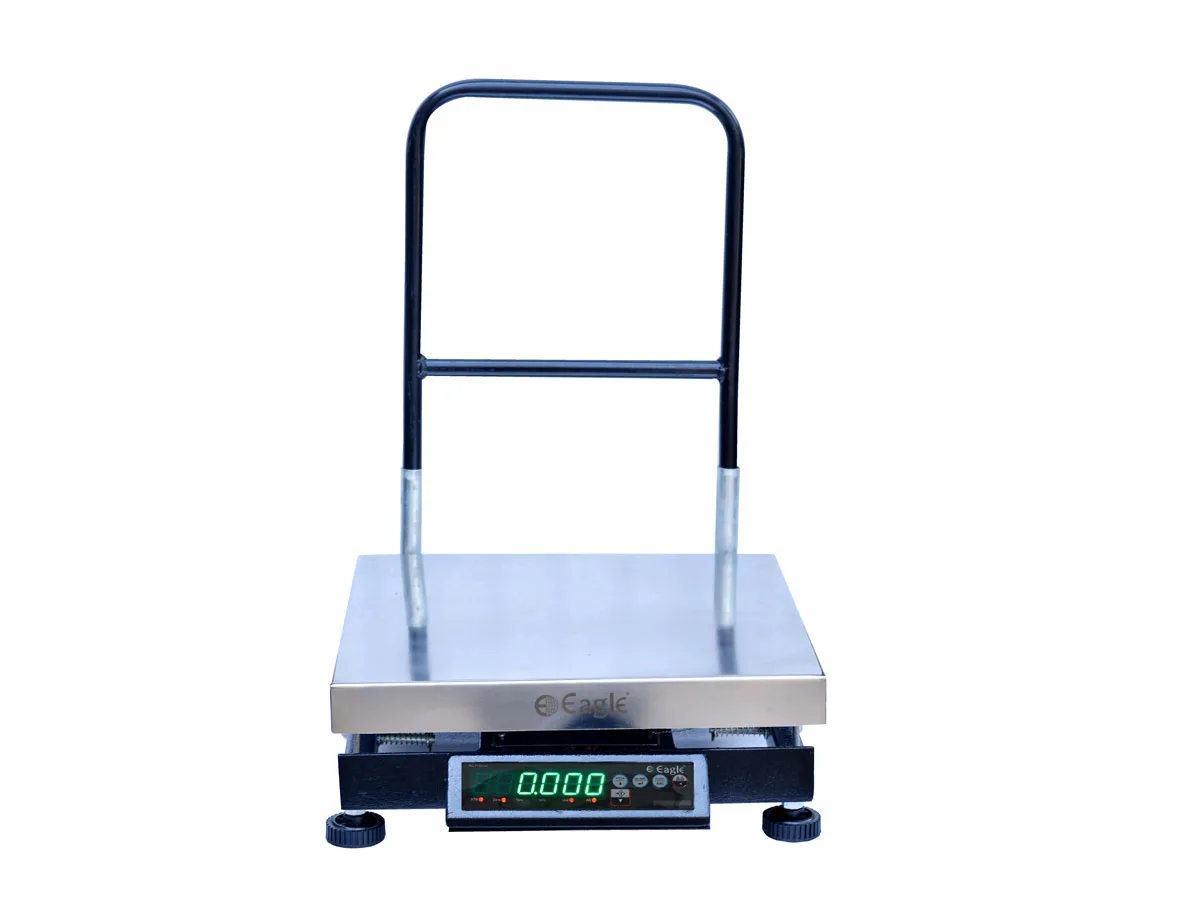
Digital Scales vs. Traditional Weighing: A Nigerian Farmer’s Perspective
Traditional Weighing Methods
- Manual balance scales
- Mechanical weighing systems
- Prone to human error
- Limited precision
Modern Digital Scales
- Electronic load cell technology
- High precision (accuracy to within 0.1% or better)
- Easy digital record-keeping
- Real-time data transmission
- Durability in harsh agricultural environments
Selecting the Right Weighing Equipment: A Comprehensive Checklist
1. Consider Your Specific Agricultural Needs
- Crop type (grains, fruits, vegetables)
- Livestock weighing requirements
- Scale capacity
- Frequency of use
- Environment (indoor/outdoor)
2. Key Technical Specifications to Evaluate
- Weight range
- Accuracy level
- Power source (battery/electricity)
- Durability
- Portability
- Moisture and dust resistance
3. Budget Considerations
While high-quality scales represent an investment, consider:
- Long-term cost-effectiveness
- Potential revenue gains from accurate measurements
- Maintenance and calibration costs
- Warranty and after-sales support
Top Weighing Scale Recommendations for Nigerian Agricultural Operations
1. Platform Scales
- Ideal for bulk crop weighing
- Large, stable platforms
- High weight capacity
- Suitable for warehouse and market environments
2. Animal Weighing Scales
- Specialized for livestock management
- Non-slip surfaces
- Quick measurement capabilities
- Robust construction
3. Portable Digital Scales
- Perfect for field measurements
- Lightweight and compact
- Battery-powered
- Immediate digital readouts
Navigating Electrical Systems Installation for Your Weighing Equipment
Proper electrical systems installation is crucial for reliable weighing solutions. Consider:
- Stable power supply
- Surge protection
- Proper grounding
- Compatible voltage requirements
- Potential renewable energy integration
Maintenance and Calibration: Ensuring Long-Term Accuracy
Regular Maintenance Checklist
- Annual professional calibration
- Clean load cells and platforms
- Check for physical damage
- Update software (for digital systems)
- Protect from extreme temperatures and moisture
Local Considerations: Weighing Solutions in the Nigerian Context
Challenges
- Inconsistent power supply
- Harsh environmental conditions
- Limited technical support
Solutions
- Invest in battery-backed or solar-powered systems
- Choose rugged, locally supported equipment
- Consider hybrid power systems
- Work with local agricultural technology providers
Future Trends: The Intersection of Agriculture, Technology, and Weighing Solutions
The future of agricultural weighing in Nigeria looks promising, with emerging trends like:
- IoT-enabled smart scales
- Cloud-based data management
- Artificial intelligence for predictive weighing
- Integration with farm management software
Conclusion: Investing in Precision for Agricultural Success
Selecting the right weighing scales is more than a technical decision—it’s a strategic investment in your agricultural operation’s future. By understanding your specific needs, evaluating technical specifications, and staying informed about technological advancements, Nigerian farmers can leverage precision weighing to drive productivity and profitability.
Quick Takeaways
- Prioritize accuracy and reliability
- Consider long-term value over initial cost
- Stay informed about technological advancements
- Regular maintenance is key to performance
Remember, in agriculture, every gram counts. Choose wisely, measure precisely, and watch your operation grow!
Weighing Technologies: A Comprehensive Overview
Modern weighing technologies have transformed the landscape of precision measurement, enabling industries to achieve exceptional accuracy and efficiency in critical processes. From enhancing quality control to optimizing production and ensuring compliance with regulatory standards, these technologies are indispensable in today’s world. Whether it’s the delicate precision required in laboratories or the robust durability needed in industrial environments, weighing systems have become a cornerstone of modern operations.
Types of Weighing Equipment
1. Digital Scales
Digital scales are at the forefront of precision measurement, combining advanced electronic technologies with user-friendly features.
- Advanced Electronic Measurement Devices: These scales utilize cutting-edge sensors and microprocessors to deliver highly accurate readings across diverse weight ranges.
- High Precision Across Multiple Weight Ranges: Ideal for applications requiring fine measurements, such as laboratory experiments or pharmaceutical dosing, as well as heavier commercial and industrial needs.
- Versatile Applications: Found in laboratories, retail environments, and industrial settings, digital scales cater to various operational demands.
- Key Features:
- Digital Displays: Bright, easy-to-read screens ensure clarity in measurement readings.
- Data Logging Capabilities: Users can track and store measurement data for analysis, ensuring traceability and consistency.
- Network Connectivity: Enables seamless integration with larger systems for real-time data sharing, enhancing operational efficiency.
2. Industrial Scales
Industrial scales are designed to thrive in demanding environments, offering unmatched durability and reliability.
- Robust Construction: Made with materials like stainless steel or alloy composites to endure rough handling and heavy loads.
- Suitability for Harsh Conditions: Built to withstand extreme temperatures, moisture, dust, and other environmental challenges commonly found in manufacturing or logistics sectors.
- Applications:
- Quality Assurance: Ensures products meet specified weight requirements, reducing errors and waste.
- Inventory Management: Accurate weight measurements streamline stock control and resource allocation.
3. Process Weighing Equipment
This category is essential for industries requiring continuous weight monitoring throughout production processes.
- Integrated Systems: Designed to seamlessly merge with production lines, these systems provide uninterrupted weight tracking.
- Real-Time Weight Data: Crucial for immediate process adjustments, improving efficiency, and reducing downtime.
- Applications: Predominantly used in industries such as chemicals, pharmaceuticals, and manufacturing to maintain consistent product quality and optimize production.
Specialized Weighing Solutions
1. Load Cells
Load cells are the backbone of modern weighing systems, converting mechanical force into electrical signals for precise measurements.
- Technology Highlights: Utilizing strain gauges or piezoelectric components, load cells deliver high-resolution weight data.
- Key Applications:
- Structural Engineering: Monitoring stress and load distribution in bridges, buildings, and other structures.
- Transportation: Measuring vehicle weights to ensure safety and compliance with road regulations.
- Industrial Automation: Providing critical data for automated process controls in factories.
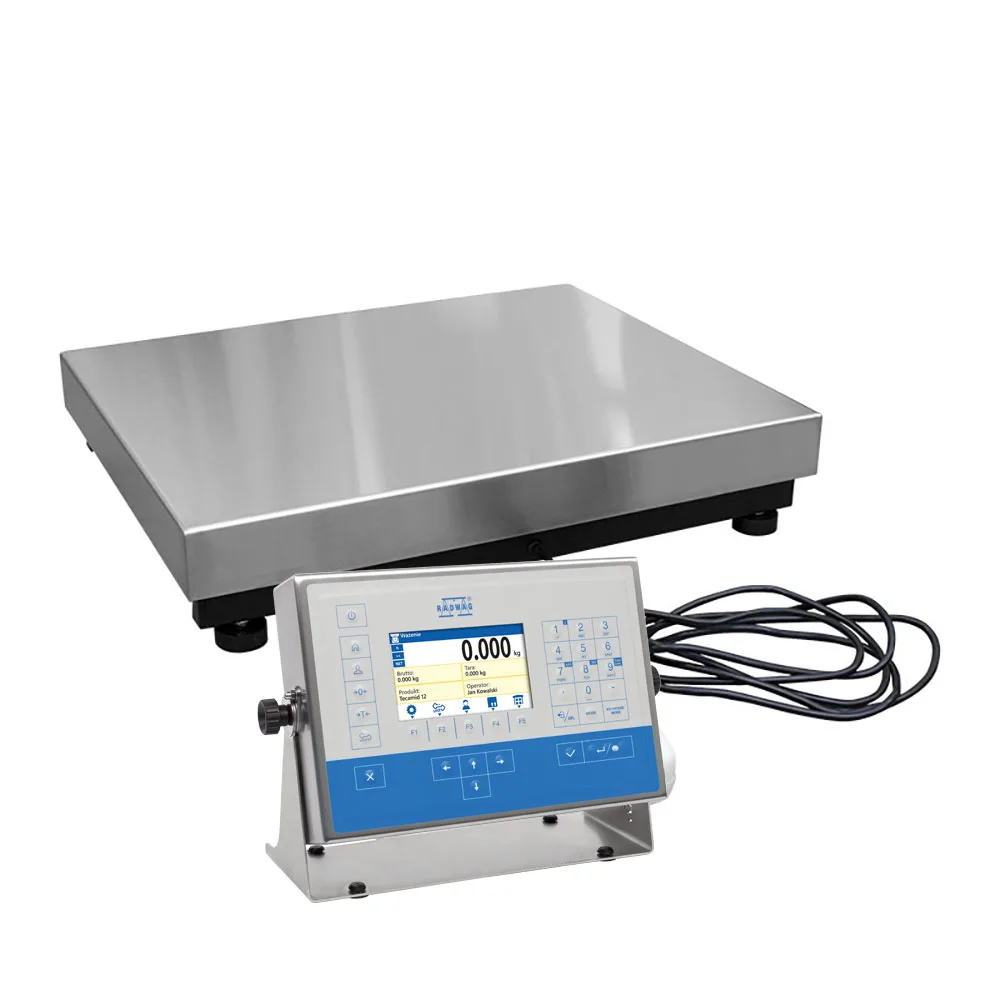
Platform Scale
2. Weighbridges
Weighbridges are large-scale platforms designed for weighing heavy vehicles like trucks, trailers, and mining equipment.
- Durable and Reliable: Constructed to handle immense loads and frequent usage.
- Applications Across Industries:
- Transportation Logistics: Ensures vehicles adhere to weight restrictions, preventing overloading and accidents.
- Mining Operations: Tracks material transport for operational transparency.
- Agriculture and Waste Management: Evaluates commodity loads and waste volumes for economic and environmental assessments.
Sector-Specific Weighing Applications
1. Agricultural Weighing Solutions
Weighing technologies in agriculture enable accurate measurement for better resource management and profitability.
- Crop Yield Measurement: Helps farmers assess production output, ensuring accurate reporting and planning.
- Livestock Monitoring: Provides weight tracking for animals, critical for health management and market readiness.
- Grain Storage and Commodity Assessment: Ensures proper handling, storage, and trading of agricultural goods.
2. Health and Pharmaceutical Scales
In the medical and pharmaceutical fields, precision is paramount.
- Ultra-Precise Technologies: Designed for tasks where even slight discrepancies can have significant consequences, such as medication dosing or lab research.
- Applications:
- Supporting pharmaceutical manufacturing processes.
- Enabling compliance with stringent regulatory frameworks to uphold patient safety and product quality.
3. Food Industry Weighing Equipment
Hygiene and precision are critical in the food industry, where weighing systems play a pivotal role.
- Contamination Prevention: Equipment features hygienic designs and materials like stainless steel to maintain food safety.
- Ingredient Portioning: Ensures consistent product quality and taste.
- Regulatory Compliance: Supports adherence to strict food safety standards.
Technological Integration in Weighing Systems
1. Electrical Systems Installation
Efficient weighing systems require seamless integration with electrical setups.
- Accurate Power Supply and Signal Transmission: Ensures uninterrupted functionality and reliability of weighing equipment.
- Minimizing Electromagnetic Interference: Protects the system from disruptions, enhancing precision in challenging environments.
2. Renewable Energy Hybrid Systems
Weighing technologies are now vital in the renewable energy sector, supporting sustainability initiatives.
- Applications:
- Monitoring component weights during installation in wind and solar energy projects.
- Optimizing performance and facilitating maintenance for long-term efficiency.
3. Building and Engineering Scales
These scales contribute to the safety and integrity of construction and infrastructure projects.
- Structural Weight Assessment: Ensures materials meet design specifications.
- Material Verification: Prevents waste and ensures quality control in construction processes.
Weighing technologies lie at the intersection of innovation, precision, and industry-specific requirements. As industries evolve and technology advances, these solutions are becoming more integrated, accurate, and indispensable across sectors. Whether it’s revolutionizing agriculture, improving healthcare, or ensuring compliance in industrial processes, weighing systems remain a cornerstone of progress and reliability.
[su_tabs][su_tab title=”Tab name” disabled=”no” anchor=”” url=”” target=”blank” class=””]Tab content[/su_tab] [su_tab title=”Tab name” disabled=”no” anchor=”” url=”” target=”blank” class=””]Tab content[/su_tab] [su_tab title=”Tab name” disabled=”no” anchor=”” url=”” target=”blank” class=””]Tab content[/su_tab][/su_tabs]Top 10 Features to Look for in a Digital Weighing Scale for Industrial Use
Precision and efficiency are critical in Industries and factories. Whether you’re weighing packages in a warehouse, measuring raw materials in a factory, or handling logistics in a shipping centre, the right digital weighing scale can make all the difference. However, not all digital scales are created equal. To ensure optimal performance, it’s important to know the features to look for when choosing the best industrial digital scale for your needs.
Why Investing in a Quality Industrial Digital Scale Matters
Industrial settings demand durability, accuracy, and reliability. A good scale for weighing packages, for example, not only ensures proper billing and inventory management but also saves time and reduces errors. Without the right scale, businesses risk overcharging or undercharging clients, which can hurt customer satisfaction and profitability.
So, what should you look for in a top-performing industrial digital scale? Let’s break it down.
1. Accuracy and Precision
Accuracy is arguably the most important feature of any weighing scale. In industrial applications, even a small margin of error can lead to significant consequences. A high-quality industrial digital scale should offer precise measurements, even when dealing with heavy or unevenly distributed loads.
Pro Tip: Look for scales with low error tolerance levels, typically ±0.1% or better, for reliable results.
2. Capacity and Weight Range
Different industries have unique requirements when it comes to weighing capacity. For instance, a logistics company may need a scale for weighing packages up to 500 pounds, while a food processing plant may require a lower capacity but higher sensitivity.
When selecting a scale, consider:
- Maximum weight capacity: Ensure it accommodates your heaviest items.
- Minimum readability: Scales should also detect smaller weight increments if needed.
Example: A scale with a 1,000-pound capacity and 0.1-pound readability is ideal for most industrial settings.
3. Durable Construction
Industrial environments can be tough, with exposure to dust, moisture, and rough handling. Your digital scale should be built to withstand these conditions.
Key materials to look for include:
- Stainless Steel: Resists corrosion and easy to clean.
- Reinforced Load Cells: Ensures durability and long-term use.
For environments with heavy machinery, opt for shock-resistant models to avoid damage from accidental impacts.
4. User-Friendly Interface
Complex machines can slow down productivity. A good industrial digital scale should have an intuitive interface that’s easy for workers to operate.
Features to prioritize:
- Backlit Displays: For easy readability in dimly lit areas.
- Tare Function: Lets you reset the scale to exclude the weight of containers.
- Pre-programmable Functions: Speeds up repetitive tasks by storing commonly used settings.
5. Connectivity Options
Modern industries rely heavily on data. A digital scale that supports connectivity can streamline your operations by integrating with inventory systems, shipping platforms, and more.
Popular connectivity options include:
- Bluetooth and Wi-Fi: For wireless data transfer.
- USB Ports: To connect directly to computers or printers.
- Cloud Integration: To store and analyze weighing data in real time.
Fun Fact: Many scales now come with mobile app compatibility, making it easier to monitor weights remotely.
6. Portability and Design
Sometimes, a stationary scale just won’t cut it. If your operations require frequent relocation of weighing equipment, portability is key.
When evaluating portability:
- Look for compact designs with built-in wheels or handles.
- Ensure the scale isn’t too heavy to move but still sturdy enough for industrial use.
Bonus Tip: For permanent installations, consider floor scales with ramps for seamless loading and unloading.
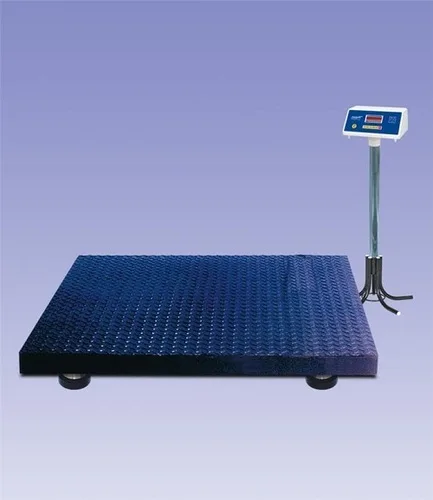
7. Power Source Flexibility
Industrial environments often experience power fluctuations or require equipment to operate in remote areas. A reliable industrial digital scale should offer versatile power options, such as:
- AC Power: For continuous operations in fixed locations.
- Rechargeable Batteries: For flexibility and backup during outages.
Check for energy-efficient models to reduce operational costs.
8. Legal for Trade Certification
If your business involves selling products based on weight, ensure the scale complies with trade regulations. Scales labeled as “Legal for Trade” are certified for commercial use and meet accuracy standards.
Why it matters: Using uncertified scales for commercial transactions can result in penalties and legal disputes.
9. Specialized Features for Package Weighing
When using a scale for weighing packages, additional features can improve efficiency:
- Dynamic Weighing: Accounts for movement, ideal for conveyor belts.
- Automatic Shut-Off: Conserves power during inactivity.
- Multi-Unit Conversion: Easily switch between pounds, kilograms, and ounces.
Industry Insight: Many shipping companies now require digital scales that integrate directly with carrier platforms like FedEx and UPS for automated label printing.
10. Cost-Effectiveness and Warranty
While price shouldn’t be the sole deciding factor, it’s important to get value for your investment. Compare scales with similar features and choose one that fits your budget without compromising quality.
Additionally, check for:
- Warranty Coverage: Look for a warranty of at least 1-3 years.
- Customer Support: Reliable after-sales service can save you time and money.
Making the Right Choice
Choosing the right industrial digital scale can feel overwhelming, but focusing on the features outlined above will simplify your decision-making process. Consider your specific industry requirements, the type of items you’ll be weighing, and the working conditions.
Final Thoughts
Investing in a high-quality digital scale is an investment in your business’s accuracy, efficiency, and credibility. Whether you’re managing a bustling warehouse, a manufacturing facility, or a packaging center, the right industrial digital scale can optimize operations and enhance customer satisfaction.
If you’re looking for reliable and feature-packed scales for weighing packages or other industrial applications, explore our wide range of options designed to meet every need. From durable construction to cutting-edge connectivity, we have the perfect digital scale to elevate your business operations.
Ready to upgrade your weighing process? Browse our collection of digital scales and find the best fit for your industry today!
5 Amazing Benefits of Onboard Weighing Systems in Nigeria
In industries where precision, efficiency, and compliance are paramount, onboard weighing systems offer a solution that streamlines processes and enhances productivity. In Nigeria, industries like logistics, mining, agriculture, and construction rely on these systems to manage loads accurately, optimize vehicle usage, and reduce operational costs. Here’s an in-depth look at how onboard weighing systems are shaping these sectors and the benefits they bring.
What Are Onboard Weighing Systems?
Onboard weighing systems are specialized equipment integrated directly into vehicles to measure loads in real-time. This technology allows operators to weigh materials or cargo without the need to stop and use a separate scale. By providing instant feedback on the weight of the load, onboard weighing systems help businesses manage load distribution, prevent overloading, and ensure safety and compliance.
Key Applications of Onboard Weighing Systems in Nigeria
- Transportation and Logistics: In Nigeria’s fast-growing logistics sector, time is of the essence. Onboard weighing systems enable logistics operators to accurately load and distribute cargo, reducing the time spent on weighbridges. This helps companies make better use of their fleets by optimizing payloads while reducing fuel consumption and wear on vehicles.
- Agriculture: Agriculture is a cornerstone of the Nigerian economy. Onboard weighing systems play a crucial role in transporting produce from farms to markets. By knowing the exact load, farmers and transporters can avoid overloading, reducing the risk of vehicle damage and ensuring that their produce arrives in optimal condition.
- Mining and Construction: Heavy industries like mining and construction require equipment that can withstand demanding conditions. Onboard weighing systems help mining companies accurately measure and transport materials like gravel, sand, and ore. This ensures that trucks carry safe loads, reducing accidents and equipment strain while maximizing productivity on-site.
- Waste Management: For waste management companies in Nigeria, onboard weighing systems are essential for monitoring the weight of waste collected. This ensures regulatory compliance, prevents overloading fines, and enables efficient load distribution. The system also helps companies provide more accurate billing to customers based on the weight of waste collected.
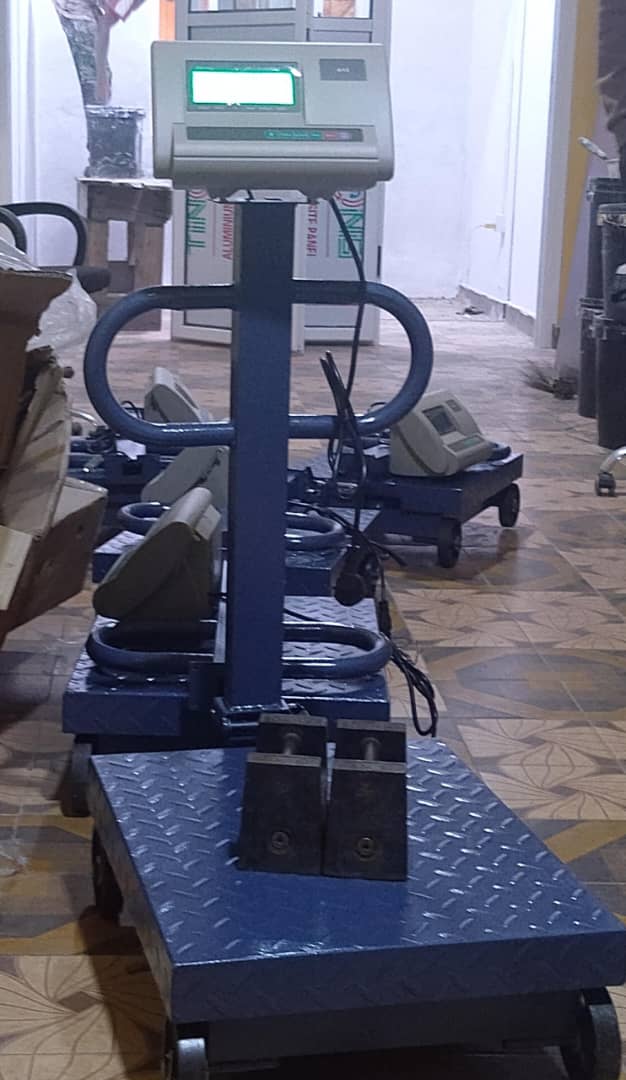
Platform Scale
Top Benefits of Onboard Weighing Systems
1. Improved Efficiency and Productivity
Onboard weighing systems eliminate the need to drive to a stationary weighbridge, saving valuable time and reducing operational delays. This is especially important in industries like logistics, where time saved on each load can significantly impact productivity. With real-time weight data, operators can make immediate adjustments and ensure that vehicles are used to their full capacity.
2. Enhanced Safety and Compliance
Overloading is a major safety concern in industries that rely on heavy vehicles. Onboard weighing systems ensure vehicles stay within legal load limits, reducing the risk of accidents caused by overloading. For Nigerian companies, this helps avoid costly fines and aligns operations with safety regulations, contributing to safer roads and work environments.
3. Cost Savings and Increased Profitability
By optimizing load distribution and preventing overloading, companies can reduce vehicle wear and tear and lower fuel costs. Proper load management also helps in avoiding unnecessary repair costs associated with overloaded vehicles. These cost savings directly contribute to the bottom line, allowing companies to allocate resources more effectively.
4. Improved Customer Service and Transparency
Accurate weight measurements allow companies to provide more precise billing and service estimates. For example, in waste management, customers appreciate transparent pricing based on the exact weight of waste collected. This transparency builds trust with clients and enhances a company’s reputation for reliability and integrity.
5. Real-Time Data and Better Decision-Making
Onboard weighing systems provide real-time data that can be used to make informed decisions. With instant access to load data, operators can optimize routes, manage loads more effectively, and quickly respond to any issues. This data can also be integrated with a company’s management system, providing valuable insights into operational efficiency and areas for improvement.
Why Choose Single Stone Nigeria for Onboard Weighing Solutions?
Single Stone Nigeria is a trusted provider of weighing solutions tailored to the needs of Nigerian industries. With a focus on innovation, quality, and customer satisfaction, we offer reliable onboard weighing systems that meet the unique demands of Nigeria’s industrial landscape. Our systems are built to withstand harsh environments, ensuring accuracy and durability in even the most challenging conditions.
Our expert team provides full support, from installation to ongoing maintenance, to ensure that your equipment operates at peak performance. We understand that each industry has unique requirements, which is why we offer customized solutions to fit the specific needs of your business.
Final Thoughts
In a dynamic economy like Nigeria’s, where efficiency, safety, and cost-effectiveness are crucial for success, onboard weighing systems provide the edge that businesses need to stay competitive. Whether you operate in logistics, agriculture, construction, or waste management, these systems can streamline your processes, reduce costs, and improve safety.
Ready to learn more? Contact Single Stone Nigeria to discover how our onboard weighing solutions can enhance your operations today!
Phone Number: 09055800000
Streamlining Business Operations with Industrial Scales
Unlocking Efficiency in Import and Export Industries –
In the fast-paced world of import and export, where every gram counts and precision is essential, industrial scales emerge as unsung heroes, quietly transforming corporate operations and increasing efficiency. From Nigeria’s busiest ports to West Africa’s commerce hubs, these crucial technologies are critical to ensuring smooth transactions and increasing efficiency. Let’s go into the realm of industrial scales and see how they’re changing the face of international trade.

Precision at every turn.
Accuracy is essential in the import and export business. Industrial scales provide the precision required to weigh commodities with pinpoint accuracy, maintaining regulatory compliance and reducing measurement disparities. Whether measuring huge freight containers or weighing individual parcels, these scales provide consistent and trustworthy results, building trust in both buyers and sellers.
Streamlined operations.
Consider a busy warehouse full with crates of merchandise awaiting transport. Without effective weighing methods, anarchy prevails, resulting in delays, errors, and operational inefficiencies. Industrial scales improve operations by allowing for speedy weighing and measurement of commodities, resulting in seamless inventory control and logistics planning. Businesses can use real-time data to make educated decisions, optimize resource allocation, and reduce waste, resulting in overall operational excellence.
Cost savings and revenue maximization
In the competitive world of international trade, every cost-cutting option is important. Industrial scales save organizations money by reducing the need for manual weighing methods that are prone to human error and inefficiency. Businesses that precisely measure goods and minimize disparities can avoid costly disputes, fines, and rework expenditures, so protecting their bottom line and increasing profitability. Furthermore, the greater efficiency provided by industrial scales allows firms to speed up order fulfillment, capitalize on market possibilities, and drive revenue growth.
Compliance and Regulatory Adherence
Navigating the intricate web of trade regulations and compliance standards can be difficult for enterprises involved in import and export transactions. Industrial scales serve an important role in assuring compliance with weight laws and trade standards set by regulatory agencies. Businesses that follow these criteria reduce their risk of penalties, sanctions, and reputational damage while also fostering trust and credibility in the marketplace.
In the fast-paced world of international trade, speed and dependability are critical components of consumer satisfaction. Industrial scales improve customer happiness by speeding up order processing, reducing delivery delays, and ensuring shipment accuracy. Businesses that continuously meet or exceed consumer expectations develop solid connections, inspire loyalty, and establish themselves as trusted partners in the global supply chain.
To summarize, industrial scales are vital assets that transform business processes and increase efficiency in the import and export industries. From streamlining weighing procedures to improving compliance, cost savings, and customer happiness, these precise instruments open up a world of possibilities for organizations looking to prosper in the ever-changing landscape of international trade. As Nigeria and West Africa’s businesses develop globally, investing in industrial scales becomes a strategic requirement for unlocking growth, managing risks, and remaining ahead of the curve in the competitive world of trade.
Ask us for weigh-bridge with different a capacity visit here for options

